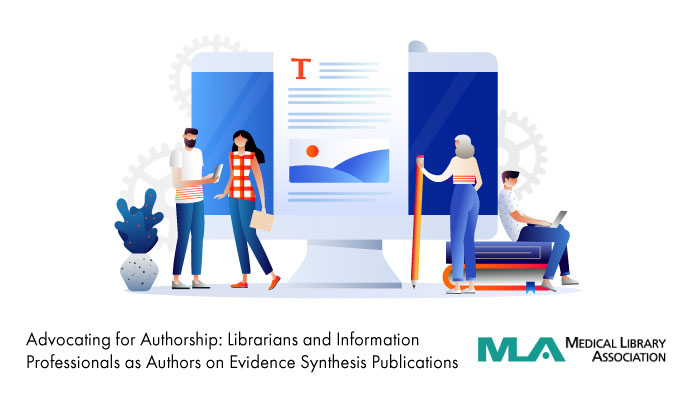In 2020, the Journal of the Medical Library Association (JMLA) launched an initiative aimed at providing more equitable opportunities for authors, reviewers, and editorial team members. As part of this initiative, we formed a workgroup of JMLA editors and editorial board members focused on implementing this work and issued a continuing call for manuscripts that address social injustices; speak to diversity, equity, and inclusion (DEI) in our workforce and among our user communities; share critical perspectives on health sciences librarianship; or are authored by individuals who are Black, Indigenous, and People of Color (BIPOC).
Along our way, however, we made a mistake: we did not honor the voices of five Black authors [1, 2, 3] who were invited to publish an editorial on anti-Blackness in librarianship [4]. This failure prompted us to deepen and accelerate our interrogation of journal processes and policies to identify and remove barriers to publishing in, reviewing for, or serving as JMLA editorial team members. To help guide this work, our equity workgroup was joined by representatives from MLA’s African American Medical Librarians Alliance (AAMLA) and Latinx Caucuses, DEI Committee, and Board of Directors. In addition, all editors and editorial board members are dedicating extra time and effort toward making JMLA a journal that better serves our stakeholders. So far, we have taken the following steps:
Give authors more power. To reduce the power imbalance between editors and authors, we now inform authors that they are not required to make every change recommended by a reviewer or accept edits that change the meaning of the text or alter ideas they wish to convey. Rather, authors are asked to justify their decision upon disagreement with a reviewer and to engage in dialogue with their editor. After acceptance, authors now receive a copyedited manuscript showing “tracked changes'' before the proof stage so they can more easily see and respond to copyedits.
Increase editorial team diversity. Our survey of JMLA editorial board members, reviewers, and authors shows that most are white, heterosexual, women, and without disabilities [5]. To increase the diversity of our editorial team, we appointed BIPOC colleagues to three editorial positions (assistant editor and obituaries co-editors) and are seeking another person from an underrepresented group to fill a vacant position (social media editor). We are redefining the purpose of the editorial board and developing new strategies for recruiting members who are representative of a broader range of identity groups, professional roles, and workplaces. Furthermore, we are developing an editorial internship program to provide health sciences librarians who are new to scholarly publishing--particularly those from underrepresented groups--with mentored peer review training and an insider view of journal editing.
Educate the editorial team. We are exploring ways of providing continuing education to all JMLA editorial team members to enrich our understanding of how systemic inequities impact scholarly publishing and editorial decisions. We will also soon be joined by a new copyeditor who is knowledgeable about DEI issues in publishing.
Make recommendations to MLA. We recommended that MLA adopts C4DISC’s Joint Statement of Principles and appoints a taskforce to update the MLA Style Manual, particularly regarding the use of race- and ethnicity-related terms and the flexibility with which the manual should be applied in different situations.
Our next steps will focus on bolstering peer review by issuing a call for reviewers with expertise in DEI issues and critical theory; giving authors the option to recommend reviewers who are particularly well suited to comment on their manuscript; and including information in our reviewer guidelines about recognizing and guarding against implicit bias.
We desire to publish articles that address DEI issues among our health sciences library workforce and user communities, even—and especially—when they serve to disrupt the status quo or question core assumptions in our profession. We are constructing an editorial team that is more diverse and better prepared to handle manuscripts on a wider range of critical topics. We will continue to enact changes to make engaging with JMLA a more welcoming and inclusive experience and will keep you informed of our progress. We also welcome your feedback and ideas for improvement, which can be sent to jmla@journals.pitt.edu or submitted through JMLA’s anonymous virtual suggestion box.
References
- Minter C. A case study on anti-Black publishing practices. [11 Dec 2020; cited 20 Mar 2021]. https://christianminter.com/2020/12/11/a-case-study-on-anti-black-publishing-practices/
- Williams J. When publishing goes wrong. [12 Dec 2020; cited 20 Mar 2021]. https://diversityfellow.blog/2020/12/12/when-publishing-goes-wrong/
- @123POW (Ossom-Williamson P). “I’m not a blogger; so, I’m thankful for the posts by @LibGirl09 & @LibrarianJamia”. Twitter, 12 Dec 2020 [cited 20 Mar 2021]. https://twitter.com/123pow/status/1337874174719774724
- Ossom-Williamson P, Williams J, Goodman X, Minter CIJ, Logan, A. Starting with I: Combating anti-Blackness in libraries. Journal Articles: Leon S. McGoogan Health Sciences Library. Dec 2020: 9. https://digitalcommons.unmc.edu/mcgoogan_articles/9
- Akers KG, Pionke JJ, Aaronson EM, Chambers T, Cyrus JW, Eldermire ERB, Norton MJ. Racial, gender, sexual, and disability identities of the Journal of the Medical Library Association’s editorial board, reviewers, and authors. Journal of the Medical Library Association. In press.




